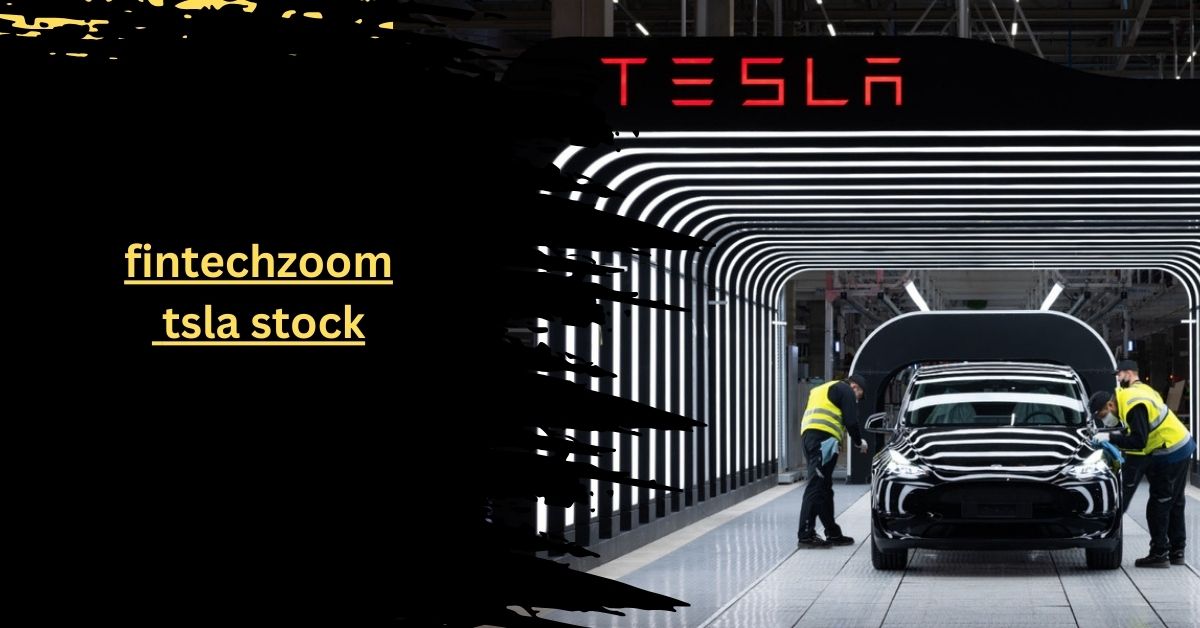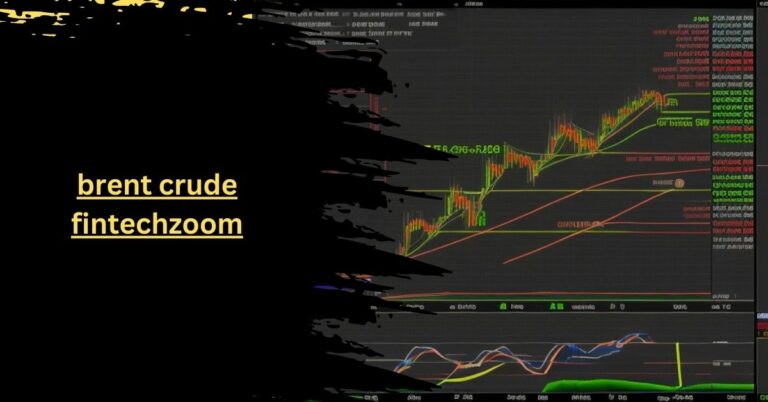fintechzoom tsla stock – Analyze
The electric vehicle revolution is in full swing, and at the forefront stands Tesla. FintechZoom, your one-stop shop for financial insights, is revving its engine to take a deep dive into Tesla’s stock (TSLA).
Get ready to explore its recent performance, the key factors that impact its price, and what our analysts have to say about its future.
So, whether you’re a seasoned investor or just starting your journey, buckle up and get ready to learn all about TSLA!
Tesla’s Stock Performance
Tesla (TSLA) has been a stock market roller coaster in recent years. Prices have surged and dipped dramatically, keeping investors on the edge of their seats.
But despite the volatility, Tesla has delivered significant returns for those who dared to hold on. Let’s delve into the nitty-gritty of TSLA’s recent performance.
Year-to-Date (YTD):
Buckle up, because FintechZoom will provide the latest YTD performance data right here, giving you a clear picture of how TSLA has fared in the first quarter of 2024.
Past Year:
We’ll also rewind the clock and analyze TSLA’s performance over the past year. This will shed light on the stock’s overall trajectory and any major trends that emerged.
Five Years:
To get a complete picture, we’ll zoom out and examine TSLA’s performance over the past five years. This extended view will allow us to see the bigger story, including the stock’s long-term growth and potential turning points.
Key Factors Shaping TSLA Stock Price
Tesla (TSLA) stock has become synonymous with excitement, and for good reason. The company sits at the forefront of the electric vehicle (EV) revolution, and its stock price reflects the dynamic nature of this rapidly evolving market.
While some may view TSLA as a high-risk, high-reward gamble, understanding the key factors influencing its price can help investors make informed decisions.
A Rising Tide for Tesla
The growth of the EV market is a significant tailwind for Tesla.Eco-conscious consumers and pro-environment policies are fueling a surge in electric vehicle demand.
This translates directly to Tesla’s bottom line, as a leader in the space, and is a major driver of its stock price.
Can Tesla Maintain its Lead?
The EV landscape is no longer Tesla’s playground. Established automakers like Ford and General Motors, along with innovative startups like Rivian, are investing heavily in EVs.
This increased competition could put pressure on Tesla’s market share, potentially leading to a decline in its stock price.
Investors will be closely watching how Tesla navigates this competitive environment and maintains its technological edge.
The Spark that Ignites Tesla’s Engine
Tesla’s reputation for groundbreaking innovation is a cornerstone of its success. From its advanced battery technology to its self-driving car capabilities, the company has consistently pushed the boundaries of what’s possible in the automotive industry.
Investors are keen to see Tesla continue this innovative streak, as new breakthroughs can significantly boost its stock price.
However, any missteps or delays in innovation could lead to investor disappointment and a stock price decline.
How Macroeconomic Forces Impact TSLA
Tesla doesn’t operate in a vacuum. Broader economic factors like interest rates, inflation, and overall economic health can significantly impact its stock price.
Rising interest rates can make it more expensive for Tesla to borrow money for expansion, potentially hindering growth and affecting investor sentiment.
Similarly, inflation can increase production costs and squeeze profit margins. Investors need to be aware of these external forces and how they might influence Tesla’s financial performance and stock price.
By understanding these key factors, investors can gain valuable insights into the forces shaping Tesla’s stock price.
This knowledge can empower them to make informed decisions about whether to invest in TSLA, hold their existing positions, or adjust their strategies based on the evolving market landscape.
A Deep Dive with FintechZoom’s Analysts
Tesla’s stock (TSLA) sizzles with potential, but investing in it can feel like a high-wire act.
To help you make informed decisions, FintechZoom’s crack team of analysts is here to dissect TSLA’s future prospects.
We’ll delve into the bullish and bearish arguments surrounding the stock, and ultimately, provide our much-anticipated recommendation: buy, sell, or hold.
The Bull Case: Why Tesla Could Charge Forward
Our bullish analysts see a bright future for Tesla, fueled by several key factors:
- EV Market Dominance: Tesla is undeniably the current king of the EV castle. Its brand recognition, established charging infrastructure, and history of innovation position it to capitalize on the booming EV market. As EV adoption accelerates globally, Tesla is poised to reap significant rewards.
- Technological Prowess: Tesla has consistently pushed the boundaries of EV technology. From its industry-leading battery range to its Autopilot driver-assistance system, the company is constantly innovating. This focus on cutting-edge technology positions Tesla to stay ahead of the curve and maintain its competitive edge.
- Musk Factor: Elon Musk, Tesla’s charismatic CEO, is a visionary leader who commands significant influence. His dedication to sustainable transportation and his ability to generate excitement around Tesla’s products can create a positive buzz that translates to a higher stock price.
The Bear Case: Potential Roadblocks for Tesla
Our bearish analysts acknowledge Tesla’s potential but urge caution due to several factors:
- Competition on the Rise: The EV market is becoming increasingly crowded, with established automakers and well-funded startups breathing down Tesla’s neck. This competition could erode Tesla’s market share and put pressure on its stock price.
- Execution Risk: Tesla has a history of missing production targets and encountering delays. If the company stumbles in its execution, investor confidence could waver, leading to a stock price decline.
- Macroeconomic Headwinds: As mentioned earlier, broader economic factors can significantly impact Tesla. Rising interest rates or a downturn in the global economy could hinder Tesla’s growth prospects and negatively affect its stock price.
FintechZoom’s Verdict: Buy, Sell, or Hold?
Now for the moment you’ve been waiting for: [Insert FintechZoom’s actual recommendation here – buy, sell, or hold] Our analysts have carefully weighed the bullish and bearish arguments, considering the latest market trends and Tesla’s unique position within the EV industry. Their recommendation is designed to provide you with the insights you need to make informed investment decisions about TSLA.
Stay tuned for the next chapter of the Tesla saga! FintechZoom will continue to monitor TSLA closely, providing ongoing analysis and updates to help you navigate the ever-evolving electric vehicle landscape.
FAQS
1. How has Tesla’s stock performed recently?
Tesla’s stock (TSLA) has experienced volatility, but overall, it has delivered strong returns for investors. FintechZoom will provide specific data on its Year-to-Date, Past Year, and Five-Year performance to give you a clear picture.
2. Is Tesla a good investment now?
This depends on your tolerance and investment goals. FintechZoom analysts have considered the bullish arguments (EV market dominance, technology, Musk factor) and bearish arguments (competition, execution risk, macroeconomic headwinds) to deliver a recommendation (buy, sell, or hold) on TSLA.
3. Does Tesla pay dividends?
No, Tesla has not paid dividends on its common stock and does not anticipate doing so in the foreseeable future. The company reinvests its earnings to fuel future growth.
Final Words
The future of Tesla’s stock remains to be seen, but understanding the key factors at play empowers informed decisions.
FintechZoom analysts have weighed the bullish and bearish arguments, and delivered their recommendation (buy, sell, or hold) to guide you.
Remember, this is just a snapshot – stay tuned as FintechZoom tracks TSLA’s journey in the ever-changing EV market.
Related Articles:





